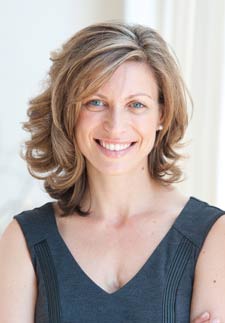.jpg)
By Andrew Cohen
A new fellowship program will help students in Berkeley Law’s International Human Rights Law Clinic (IHRLC) gain valuable summer experience and improve their career prospects in the field.
“The clinic gave me so many tools to be an effective lawyer and to make a real difference in people’s lives,” said Kathleen Janus ’03, who made a $10,000 anchor donation with her husband Ted Janus to launch the program. “The hands-on experience and strong mentoring I received there transformed the way I approached the practice of law.”
Their donation covered half of the seed funding for the fellowship, which will enable IHRLC students to work with one of the clinic’s partner organizations the summer after their second year of law school. With other donations honoring the clinic’s 15th anniversary, Director Laurel Fletcher hopes to fund four fellowships over the next two years.
“It’s tough to get a job in human rights work, and this is a great way to help our students who want to pursue a career in that area,” she said. “They’ll get to deepen their clinic experience and conduct field work with organizations that will benefit from the expertise our students have already gained. They won’t have to waste time getting those students up to speed.”
Janus, who teaches International Human Rights at Berkeley Law, has led numerous social justice initiatives. She co-founded Spark, a non-profit focused on building a community of young, global citizens promoting gender equality. Since 2004, Spark has engaged more than 5,000 young professionals and raised more than $1.5 million to support grassroots women’s organizations.
From 2007 to 2011, Janus helped launch and direct Stanford Law School’s international human rights clinics in Namibia and South Africa, supervising fieldwork projects related to HIV/AIDS, water rights, and rural women’s issues. The former pro bono counsel at Covington & Burling, Janus serves on the boards of Berkeley Law’s alumni association and Human Rights Center.
Fully engaged
“I’d been talking with Laurel about how we can engage alumni on a deeper basis,” Janus said. “My husband went to UC Berkeley and we both see how the decline in state funding has affected the university. As a family, we’re passionate about engaging the next generation with our school in a philanthropic way. Whether it’s volunteering, mentoring, networking, or donating, it’s important to strengthen connections to our school community.”

Toward this end, Janus and Fletcher are developing an alumni engagement committee to help IHRLC graduates assist clinic initiatives in various ways.
Over its 15 years, the clinic’s wide-ranging work has produced major court judgments on behalf of Guatemalan clients whose relatives were forcibly disappeared during that country’s civil war, a groundbreaking report on the plight of Guantanamo detainees who had never been convicted of a crime, and legal protections for refugees in Africa and undocumented students at UC Berkeley.
Each semester, three full-time clinic instructors help 25 students clarify complex issues, develop innovative policy solutions, and engage in vigorous advocacy. With an increasingly competitive legal profession both domestically and internationally, Janus sees that training as more vital than ever.
“I think clinical education is the future of legal education,” she said. “As an associate, I benefited so much from already having met with clients, written briefs, and managed court projects. We’d never send a first-year medical student with a few biology classes into surgery, yet schools send law students out into the legal profession with no practical experience. It’s not ethical to learn how to be a lawyer on your client’s dime, and it’s also not sustainable over time.”
With the clinic poised to benefit from that perspective, Fletcher looks forward to extending its reach—and to paving career paths for students interested in human rights work.
“Kathleen has a strong commitment to the clinic and clinical education, and also to young entrepreneurs engaged in social justice work,” Fletcher said. “I’m extremely grateful, though not surprised, that she saw the value in this type of fellowship.”